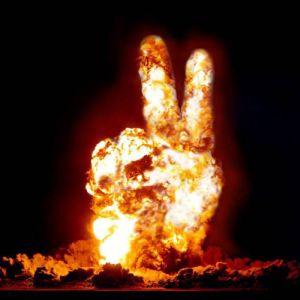[The following are introductory paragraphs from a post by ISE ally Randall Amster published on the New Clear Vision blog.]
Search the news for the word “meltdown” these days and you’ll probably get one of three main hits: the situation in Japan; the U.S. economy; and Charlie Sheen. Take a guess which one is most likely to occupy peoples’ attention spans and fill the  pages of tabloids going forward? Celebrity gossip is a powerful palliative for troubled times, and most of us know about as much behind the science of nuclear reactions as we do about the inner workings of the economy. Sheen? We know him all too well…
pages of tabloids going forward? Celebrity gossip is a powerful palliative for troubled times, and most of us know about as much behind the science of nuclear reactions as we do about the inner workings of the economy. Sheen? We know him all too well…
So it’s not surprising that calamitous events – from the BP gusher to the “long hard slog” of Afghanistan – slip beneath the collective radar and result in almost no widespread changes in modern society. The war drags on and the crude is in our food, yet few seem all that outwardly concerned. With the economy, at least there’s been a bit of push-back of late, but across America the malls are still open for business-as-usual and CEOs are laughing all the way to the bank with record bonuses.
What will it take to overcome the cultural doldrums of apathy and distraction? The Japanese disaster weaves together a number of common threads that could serve to jolt people out of their complacency if the knowledge was widely disseminated – but unless a cloud of radioactive death arrives in America, that seems unlikely to occur. After all, we live in such an egocentric culture that commentators like CNBC’s Larry Kudlow can blithely utter callous statements about Japan and still remain on the air: “The human toll here looks to be much worse than the economic toll, and we can be grateful for that.”
The same forces that would centralize the economy in the name of productivity and security are likewise behind the centralization of energy production. Even as it is being touted as a “green” and “carbon-neutral” source, nuclear power is the antithesis of potential small-scale evolutions in solar and wind power. Few of us could operate a nuclear reactor, and the very workings of the technology are beyond the technical capacities of the populace. This breeds an utter dependency upon not only the suppliers of such energy, but also upon the information (both pre- and post-catastrophe) they are supplying to us.
Please click here to read the rest of the article, originally published on the New Clear Vision blog.


